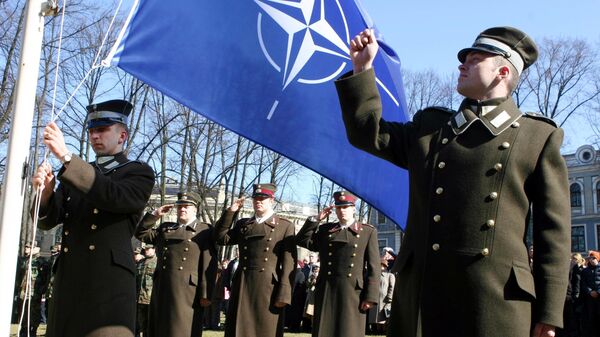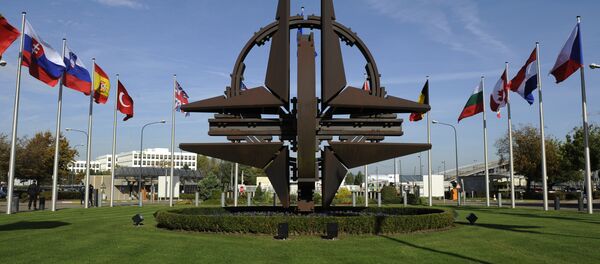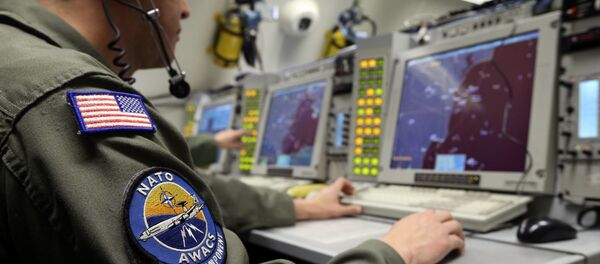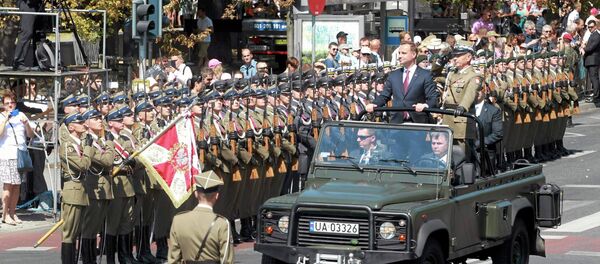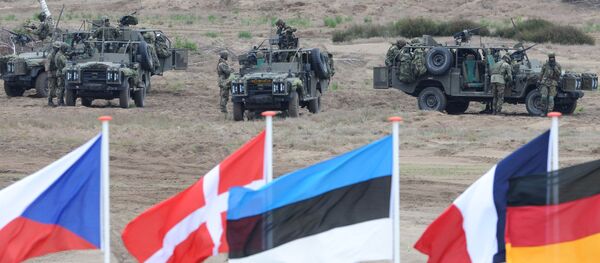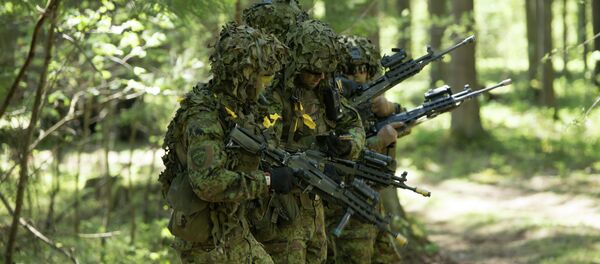Failing to specify what he meant by the latter comment, Kazocins said only that Russia would definitely 'change', and that this is "only a matter of time."
At the same time, the British-born former head of Latvian intelligence explained, "Russia takes advantage of weakness. If the Russians see our readiness to strike, this commands their respect."
Furthermore, earlier this month, BBC 2 aired the documentary 'World War Three: Inside the War Room', which proposed a scenario for war between NATO and Russia over a hypothetical Russian takeover of the Latvian region of Lettgallia after 'pro-Russian forces' declare their independence from Latvia.
Last week, NATO Secretary General Jens Stoltenberg announced that the alliance had agreed to substantially increase its presence in Eastern Europe, sending a "clear signal" that "NATO will respond as one to any aggression against any ally." The signal, Stoltenberg emphasized, would be aimed against a "more assertive Russia which has used force to change borders."
Asked for comment by the newspaper, Stanislav Byshok, a political analyst at the Commonwealth of Independent States Electoral Monitoring Organization (CIS-EMO), said that "when we speak about the situation in Latvia, and the presidential advisor's statement, it's important to understand that what he wants is for other countries to spend their taxpayers' money and military capabilities to protect Riga from what he calls 'Russian aggression', and to carry out a 'democratization' of Russia."
"All of the most radical and bellicose statements coming out of the 'zone of instability' stretching from Georgia to Estonia are calculated with the thought in mind that if something were to happen, NATO would step in on these countries' behalf," the analyst added.
Byshok also critically noted that "considering the massive losses the Baltic countries have suffered as a result of their European integration – from the death of their industrial base to the total brain drain to the West – the suggestion that they could serve as a positive example to anyone, Russia included, is highly debatable. If, in Soviet times, many in the USSR saw the Baltics as a 'showcase of the West', today, it's impossible to call them anything but a backwater."
"On the one hand, the Baltic states are signaling that they cannot cope economically, and need more financial support, primarily from the United States. So they come up with reasons for such support. If large contingents of NATO troops were deployed, they would need additional infrastructure – more housing, shops and so on; this is an opportunity for unemployed people in these countries' to earn a living. It sounds trite, but it's as simple as that."
At the same time, "when one listens to statements by US presidential candidates on foreign policy, it is obvious that they have no idea what is happening in the remotest corners of Europe. So when they hear the latest accusation from some Baltic politician that Russia will soon attack, they transmit this idea to their constituents, and say that they must support their allies and grow US military power."
For his part, Vladimir Simindey, Baltic region expert and the director of the Historical Memory Foundation, told the newspaper that Kazocins's struggle against Russia is really "a family affair…His father, Indulis Kazocins, was an officer in the Latvian Waffen-SS Legion, and was involved in calling up Latvian teens to serve in the Luftwaffe, and in other affairs. It's generally not customary to talk about his activities in 1941, when he served in the Auxiliary Police. Janis Kazocins, as he himself has admitted in an interview, was brought up in the spirit of the SS legionnaires. It's not so much a matter of Nazi ideology, as it is of an ideology of revanchism."
Ultimately, Simindey suggested, "if the horrifying scenario which he describes were to be implemented, Alabama, as they say, is far away, but Latvia is close. Escalating the situation is an old business formed by émigré circles long ago. It is their manner to put the carriage before the horse, and to shout louder than in Western capitals. It's obvious that presently such trends have only been exacerbated."
Unfortunately, the analyst added, "any increase in the NATO contingent [in the Baltics] will naturally whip up emotions. For the moment, I do not think this is a strategic threat to Russia, but a case of saber-rattling. But pulling the region into a confrontation between NATO and Russia could not bring anything good for residents of Vilnius, Tallinn and Riga, and they themselves understand this."
In the final analysis, Simindey says, ahead of any possible provocation, including against the Russian-speaking minorities in the Baltics, it "is necessary to search for people who are not inclined to listen to propaganda, and who are able to offer an alternative view in the media," even if this is difficult "in a situation where information is tightly controlled, and any attempt to offer an alternative viewpoint is classified as 'Kremlin propaganda'."
"It is necessary to monitor carefully those groups that try to organize provocations, and to communicate using all available means to the people of the Baltics and their elites that matches in the hands of children are not a toy," the analyst concludes.

